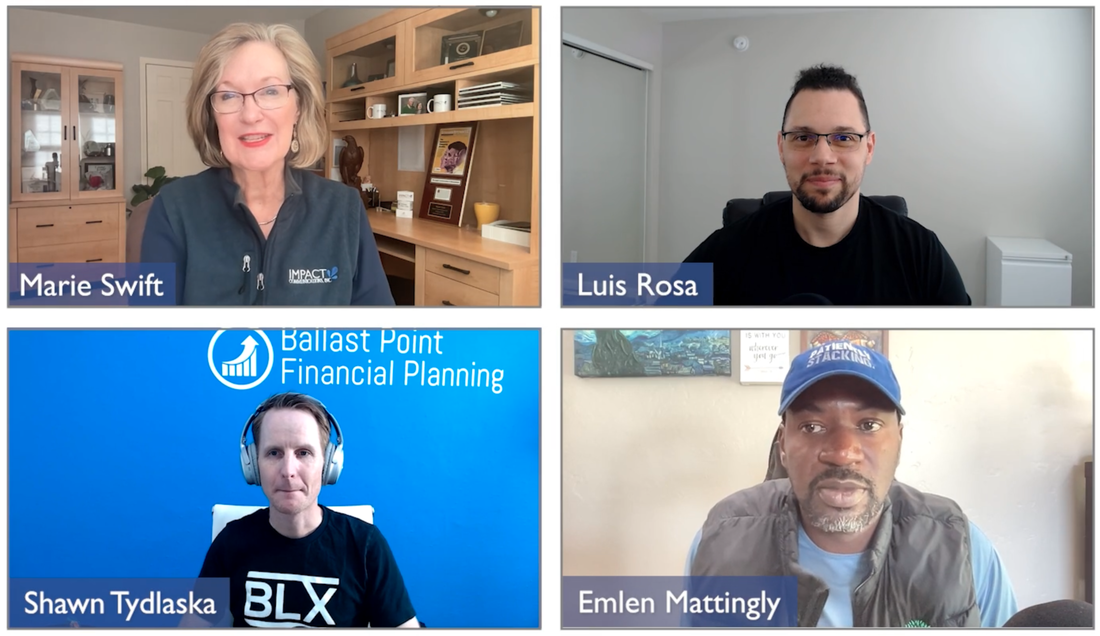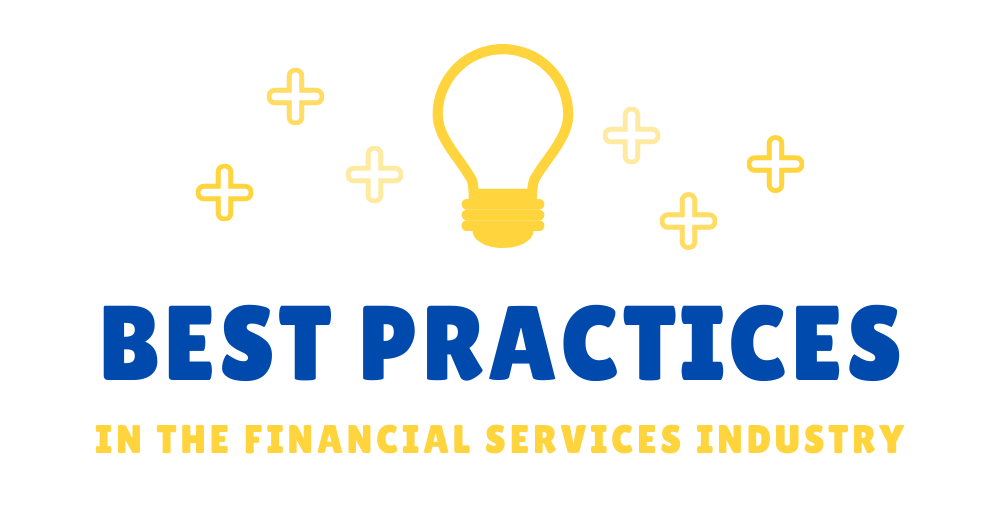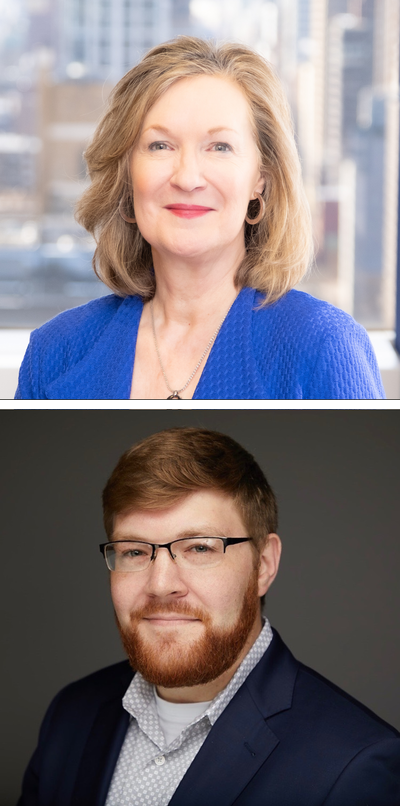Swift Chat with Luis Rosa, Emlen Miles-Mattingly, and Shawn Tydlaska: The BLX Internship Program12/19/2023
In this Swift Chat conversation, Marie Swift speaks with Luis Rosa, Emlen Miles-Mattingly, and Shawn Tydlaska, three of the four co-founders of the BLX Internship Program, a premier initiative dedicated to fostering diversity in the financial planning profession, specifically for aspiring Black and Latinx financial planners. The trio expresses a genuine desire to make the financial planning industry more inclusive in response to the civil unrest following George Floyd's murder. Through partnerships with organizations like the National Association of Personal Financial Planners (NAPFA) and sponsors like the Charles Schwab Foundation, the program has successfully provided opportunities for underrepresented groups, establishing a fresh pipeline of diverse talent for financial planning firms. The conversation touches on the transformative impact on both interns and firms, emphasizing the importance of mentorship, community, and the value derived from fostering diversity in the financial services industry.
BLX’s application window for firms to get involved and host an intern in summer 2024 closes on December 31st, 2023. Don’t miss your chance to not only help the financial industry truly reflect the world we live in, but tap into BLX’s pipeline of top-quality interns.
Learn more and apply at https://www.blxinternship.org/ It was out of the desire to see the industry become more inclusive and see the industry reflect our country. We wanted to be able to provide a gateway for people to find a place in the financial services industry because we all have found how wonderful a career it is, and it was through those first conversations and our desire to see the change that led to the beginning of the BLX Internship Program." Transcript of Conversation
Marie Swift: Hey, everybody, it's Marie Swift. Welcome back to another great Swift Chat. I'm happy to have three of the co-founders of the BLX Internship Program, and I will jump right into it. So, Luis Rosa, you're one of the co-founders. Would you get us started by talking about what the BLX Internship Program is?
Luis Rosa: Thank you, Marie. It's a pleasure and an honor to be here. The BLX Internship Program is the premier internship program for aspiring black and Latinx financial planners. Our mission is to increase the diversity in the financial planning profession by providing opportunities to those from underrepresented groups to join the industry meaningfully, working directly for fee-only and fee-based financial planning firms. Swift: Emlen, I understand that you were one of the reasons this started. Maybe fill in some of the blanks, some of those gaps Luis may have left out. How did this whole idea germinate? Emlen Miles-Mattingly: It absolutely germinated out of our desire to help the industry become more inclusive. One of the things that did that was the civil unrest that was happening after the murder of George Floyd. At that time, Shawn had reached out to check on me out of genuine concern. And then, we started to talk a little about how we could help. That conversation gave birth to us looking at our friends and asking if we would try to do something like this, who are some people that would want to join us? And that brought in Luis and Chloé. As I was saying before, it stemmed from the desire to see the industry become more inclusive and see the industry reflect our country. We wanted to provide a gateway for people to find a place in this financial services industry because we all see how wonderful a career it is. Through those conversations and our desire to see change, we began the BLX program. Swift: Shawn, how did you get involved in this project? Did you reach out to Emlen? Shawn Tydlaska: Yeah, I first reached out to Emlen, my original plan was to ask if he knew anybody who needed an internship to get started in the profession. Then we talked about it and thought, maybe other advisors want to help people get started in the profession as well. I have had three internships before I got my first full-time job, so I know how that first job can get your foot in the door. I also struggled to find my pathway into the profession as a white male. I'm having a hard time, and I know Luis, Emlen, and Chloé Moore's stories and the challenges they've all overcome; I have nothing to complain about. The more help and support we can give to people from diverse backgrounds trying to get into the profession, the more people that will be in the profession, and the more people that will ultimately get served by financial planners. Swift: Luis, I want to bounce back to you. How did you get involved in this project? Rosa: I got the call from Emlen, and he told me that Shawn had reached out, and we put our heads together to figure out how we could expand this. Initially, it was very grassroots. We were all going to take on an intern ourselves; then, we would reach out to our peers through the various organizations that we belonged to at the time and see if anybody else was willing to take on an intern. We had no idea that we would end up launching a 501c(3) nonprofit with sponsors and a whole bunch of firms. Initially, we thought that many people who would join our movement would do it out of the kindness of their hearts to open up that opportunity for people. But it turns out firms are looking to hire, and in many of the things that we found out, one of the common threads was that we didn't know where to look for the people who were intentionally hiring a diverse pipeline. The first thing was that we had no idea where this talent pipeline was. Most people got their interns referred by another intern or it was the son or daughter of a client. There was no pipeline of diverse talent, and I like to say we took that excuse off the table, and now we have a fresh pipeline of qualified and very eager talent from black and Latinx backgrounds for firms to choose from. Miles-Mattingly: Can I add something to that? Swift: Yeah, I was just going to ask you to. Miles-Mattingly: I think that was so important because when we were coming into this and trying to provide that pathway, I believe that there were firms that wanted to bring more diverse talent, and there were people that wanted to come into this industry. We didn't spend much time talking about how difficult it was for us to get into it, myself, Luis, and Chloé. The first year taught us so much. That first year, when we started to find out how many people wanted to get into this career, I was fortunate enough to have some interns. We found that the talent was there waiting to be discovered, and the talent was ready to be used. It was immediate. In my experience, it was never a thing about having talent. We just didn't know the talent wanted to be found in this industry. And we gave them an opportunity; we have raving reviews from almost every firm. I'll give you one from Gen Next Wealth saying how incredible the talent was that we could find that usually wouldn't have been available if not for a program like this. For people looking for interns from diverse backgrounds, this is one of the many places you can look to see the success that people can have when they look outside of their comfort zone for new talent. This program speaks to that. Swift: Before we move on to the program's nuts and bolts, Chloé Moore could not be here today, and she's one of the co-founders. Who wants to tell Chloé's backstory? How did she get involved? Miles-Mattingly: I think I reached out to Chloé, and I told her about what was going on. Chloé had talked a lot about internships, so as soon as we discussed it, she was very adamant about a few things. One of them was that the interns had to get paid; she had talked about her experience going to school and how she couldn't do an unpaid internship, even though she majored in financial planning if I’m not mistaken. When you think about what Chloé brings to the team, she is one of the most organized people. Also, her experience in the industry, which I don't want to try to explain, but her experience as a woman and as a black woman in the industry, really brought some insights that three men had never even heard of. We hadn't experienced some of the things that she had gone through as a woman in this industry. And we were friends, obviously, so it was going to be easy for her to come in, but the experience that she had and the perspective she was able to bring made her even more valuable than we ever could have hoped. Swift: So this thing is galvanizing, it's germinating, and you're seeing support. You've got a pipeline of talent, and you've got people who want to find that pipeline of talent. And then there were sponsors who raised their hands. So, Shawn, tell us about one of your first success stories. Someone who came and said, we want to support your cause as a sponsor. Tydlaska: Probably the first big organization to raise its hand was NAPFA. From the beginning, they were like, this is a winner of an idea. We recognize that an internship is a great way to get firms involved because it's a low ask from their end, where they don't have to recreate the wheel. We provide resources for them, and they've been supportive by offering us opportunities to speak to NAPFA members at conferences or webinars or promoting us through their newsletter. They've been a great sponsor. Schwab has also been a massive sponsor of us. And they've committed to a multi-year sponsorship level for us to help continue to provide the financial wherewithal to run the program, so they provide capital to us. They've also had us at their conference. They had a career day where we talked to students looking to get into the profession. Both Schwab and NAPFA have been huge supporters of us. Swift: Anything else to add? Emlen? Luis. Rosa: Yeah, also Advisor Business Solutions, Suzanne Lawrence. She was vital to making this work, how the sausage gets made if you would. She volunteered herself and her team in year one to be the initial point of contact for both firms and interns. And then they interviewed every single applicant, every single firm. They found out where they were and what they were looking for and then created this matching process behind the scenes to ensure that people were paired. They were finding the best talent with the best need. And that was amazing because we had no experience in HR or anything like that. So, having her come in and have that expertise from her years of helping firms that wanted to hire added that one extra piece of being able to make it a robust program. One of the best compliments we got from J.D. Bruce, who was with Abacus at the time, was that this is an amazing internship program that happens to have a diverse focus on it. And to me, that meant a lot, especially coming from him. Miles-Mattingly: We started with a great idea, so everyone else who had heard about it thought it was great. That first year, I remember how many interns we had come in and how many applications, and then we started looking at what we would have to do. So, her team from Advisor Business Solutions came in and started bringing things to our attention that we didn’t know before; because we're advisors, we've never started a not-for-profit. What she was able to do with us in that first year, and then at the end of that first year, getting us ready for the second year, her team was instrumental in what we had built and how we were able to conduct interviews and help the interns with what they needed to do on their resumes prior. Everything that we didn't think of, she thought of. I want to make sure that we give her team kudos and thanks to her, Guy, and everyone who was instrumental in helping us round out our idea. Swift: If I'm a firm and I want to find an intern, how do I get involved? What do I get out of the program? Is there a fee? Tydlaska: We are running a recruiting firm through Advisor Business Solutions. And that's something that we didn't think about initially. We thought we'd get all these candidates, do a quick run-through of all their resumes, and then send out random matches to these companies. But what Suzanne Lawrence and her team brought to the table was that she would try to find the best-fit candidates for the firms based on their needs and what they were looking to add to their team, increasing the chances of success. In addition to that, she also helps do mock interviews and allows people to put their best foot forward during the interview process. If you're a firm and you're looking to get involved and hire an intern right now, we're accepting applications for the summer of 2024. You can apply until December 31, 2023. Go to our website and click apply here; there's a Google form to fill out. Then, someone from Advisor Business Solutions will do an interview for you to talk about how many interns you are looking for. What we found is that if you're looking to hire one full-time team member, it's good to hire two interns. That way, you have someone to compare them to. This two-to-one ratio seems to work out really well, so they'll interview for what your needs are. There is a fee to participate because it is labor-intensive to do this matching process and all the coaching. It starts at $1,500 if you're a solo firm, and it scales up to $10,000 if you're an enterprise firm and you're looking to bring on five or more interns. Our fee schedule is on the website, so you know what to expect. From there, you'll get your match of interns. It's typically three intern candidates for every role that you're looking to hire. Leading up to the summer internship, we have some training. For example, what should you have your intern do for the summer? We have a sample syllabus. We have an internship in a box resource that we provide to all the firms. You don't have to recreate the wheel; you can use our best practices, and we even have templates and resources, such as an NDA or an employment agreement. Then, you'll interview your candidates. If those candidates don't seem like a match, we can send some other candidates to you until you're happy with the intern you're going to be hiring for the summer. Then, deciding when you want that internship start date is up to you. Luis does taxes, so he had his intern work during tax season from February to April. But most interns work from May to July. Rosa: That was a good summary. We provide many resources to the firm, including DEI training, because we found out that many firms are hiring their first diverse candidate. So, it's beneficial to have that community of advisors who have done it before and have professional training on things to look out for and how to make someone feel comfortable and be their 100% authentic self at work. A lot of the stuff we don't know, so people might feel like they don't want to ask in case they ask the wrong question or something like that. We also have a very robust speaker series for the summer interns. All the firms that are participating in the program and their employees are invited to participate. And we have a lot of CEOs and other leaders within the industry that come in and share their expertise or experience. And that just adds that much more value to all the interns. We have also partnered with other companies like eMoney that offer the eMoney certification. So, in addition to being able to have the opportunity to work at a firm, a lot of our interns also get certified in eMoney. And they get access to an investment university on campus. We even have an SIE training course. There are a lot of candidates that come through. Unfortunately, not everyone gets matched, so we want to make sure that they are able to put their best foot forward. We provide scholarships and training; we continue to provide year-round support so that maybe the next time around, they're better prepared. For firms, we also provide opportunities for career changes. Emlen was talking about this; that first job is so hard to get, and Shawn always mentions that as well. When you're a career changer, you often don't meet any of their requirements for even an entry-level position. And we have a lot of career changers that have come through the program. They have all the people skills and all the necessary skills to be in this field; they don't have the technical skills. And we always say you can always teach the tech to someone. So, keep your eyes open. Firms, relax those guidelines if you want to be intentional about getting that diverse talent because there are a lot of opportunities out there for eager and talented people. You can always teach them your way. Miles-Mattingly: In addition to that, we're talking to smaller firms, maybe a solo practitioner, perhaps you have you and one other person, and it is the scariest thing ever to bring someone into your firm that you're still trying to build, and you might not have everything the way that you'd like it. So I'll tell you, to that person, this is one of the best ways for you to get better with your processes. This is one of the best ways for you to step up your firm's operations. Because now you'll have to explain what you do to someone else. And you will find the holes, you will find the missing parts, you will find the things that you need to do. I believe this is important because if you're trying to grow your firm or enhance your client experience, one of the best things to do is have your intern go through that experience and then start having them help you make the adjustments. This gives you actionable things for them to work on. And now you can have checks and balances for what you want done. If you don't take the time to explain this to someone else or this intern, who else will you explain it to? If you're working by yourself, who else will come in and do an audit of what's going on? If you don't take a little time, give back to the industry and help an intern get into this industry to make it better. So that's just my little shameless plug for anyone that's a single-person firm, or maybe even two people. Or you're terrified because you're like, what will I do with this person I will bring into my firm? Or I don't know if I even have enough work for them. I promise you, there's enough stuff once we start digging into the operations, the processes, and the client experience. Those three things would change your firm and allow someone to enter the industry and see what this is all about. Swift: You might even end up with some documentation, like a training manual for that person, if they continue or as your firm grows. Right? Miles-Mattingly: Absolutely. Tydlaska: They would create the manual for the next intern. The first person I hired didn't have an operations manual, so that person documented everything we did. They can also sit in on your meetings and take notes, so they help you leverage your time. We suggest that each intern do a capstone project for their firm, which the firm is considering adding or changing. For example, do we want to do tax prep in-house, or how do we plan estate for our clients? So, the intern can do research and then present what they've learned at the end of the summer. It's also an excellent way to test their research and presentation skills. Another thing I wanted to mention is we've established relationships at all the CFP accreditation schools. Maybe not all of them, but we're developing relationships there. We're developing relationships with student groups at all these schools and professional organizations like Quad-A and Alpha. We've done the networking to provide candidates with diverse backgrounds so you can access those groups without having to reach out to your local university. We recommend that you're open to a virtual candidate so that more people can access this profession. We realize that some people want local candidates, and we try to provide them with local candidates when possible. Some firms fly their intern out for a couple of weeks at the beginning of the summer or for the whole summer. They provide housing. You could do an onboarding boot camp at the start of the summer and an offboarding at the end of the summer. That way, you don't have to provide housing for the whole summer. Those are some options to increase the pool of candidates that your firm can consider. Swift: Luis, in closing, tell us why a firm, intern, or company like Schwab or eMoney would want to sponsor. Why would anybody want to get involved with the BLX Internship Program? Rosa: I think it comes down to impact. We have so much impact on our clients’ lives as financial advisors, but we can't serve them all. So many people out there need financial planning and don't have access to it. What better way to expand that ability to serve so many more people who are in need than by multiplying the force? When you look at the statistics from the CFP Board, most CFP certificates are over the age of 50. So, they might be selling their practices or retiring. We need a younger, diverse talent pipeline to match the population of this country better. That's why everyone should get involved, from interns to firms to sponsors, to have that much more impact overall in this industry. Because it's just going to go on and multiply, just like compound interest does us. Swift: Well, gentlemen, I've enjoyed every minute, and best wishes to Chloé. We hope she can join us next time. Thanks for being here. Comments are closed.
|
About
|
|
Stay Connected
|
Phone: 913-649-5009
©2023 Impact Communications, Inc.
|





